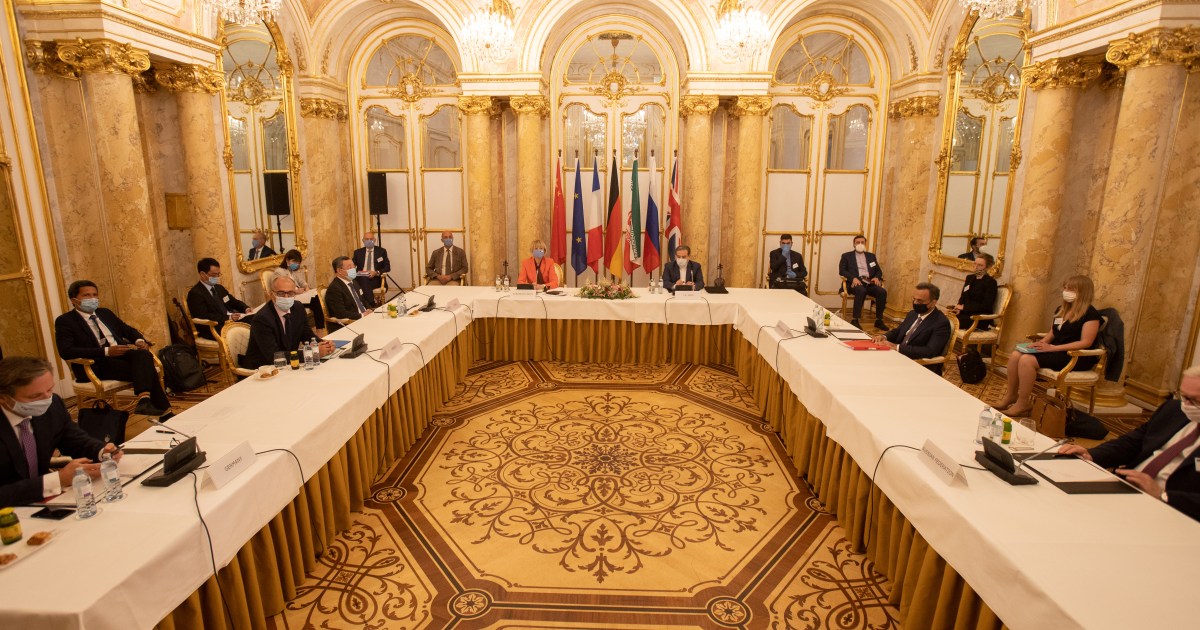Today, Tuesday, at the conclusion of their meeting in Vienna, the countries that signed the 2015 agreement on Iran's nuclear program reiterated their desire to save it, while China denounced the US efforts to re-impose sanctions and extend the arms embargo against Tehran.
The purpose of the meeting was to discuss the latest developments in the Iranian nuclear deal in light of the tensions caused by the US withdrawal from the agreement, and Washington’s efforts to impose new sanctions on Tehran in the face of European rejection of that step.
Representatives of the foreign ministries of the six countries concerned, namely Iran, France, Britain, Germany, China and Russia participated in the meeting.
For his part, Russian Foreign Minister Sergey Lavrov said that Washington does not have the right to re-impose international sanctions on Tehran by activating the mechanism included in the Joint Comprehensive Plan of Action, because it has lost all rights to abandon the nuclear deal.
Lavrov affirmed his country's readiness to sponsor a direct dialogue between the United States and Iran, with the aim of overcoming their differences with regard to the nuclear agreement, in the event that the two sides expressed readiness for that.
Difficulties
"Iran, China and the Europeans are united in their determination to preserve the nuclear deal despite the current difficulties," wrote diplomat Helga Schmid, representative of the European Union, upon leaving the meeting she chaired.
The 2015 agreement between Iran and the major powers raises part of the international sanctions on Tehran in exchange for guarantees that prove the peaceful nature of its nuclear program and limit some of its nuclear activities.
In 2018, the United States withdrew from the accord and re-imposed unilateral sanctions.
In response, Tehran has resumed uranium production, which has now exceeded the permissible limit, according to the latest report of the International Atomic Energy Agency issued last June.
On August 21, Washington officially tried at the United Nations to activate a controversial mechanism to demand the re-imposition of international sanctions on Iran within a month, but it immediately collided with the rejection of its European allies.
The tone increased unusually between the two sides of the Atlantic, so US Secretary of State Mike Pompeo went so far as to accuse France, Britain and Germany of "choosing to align" Iran.

